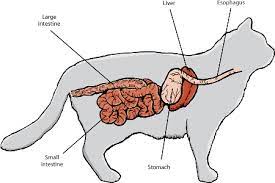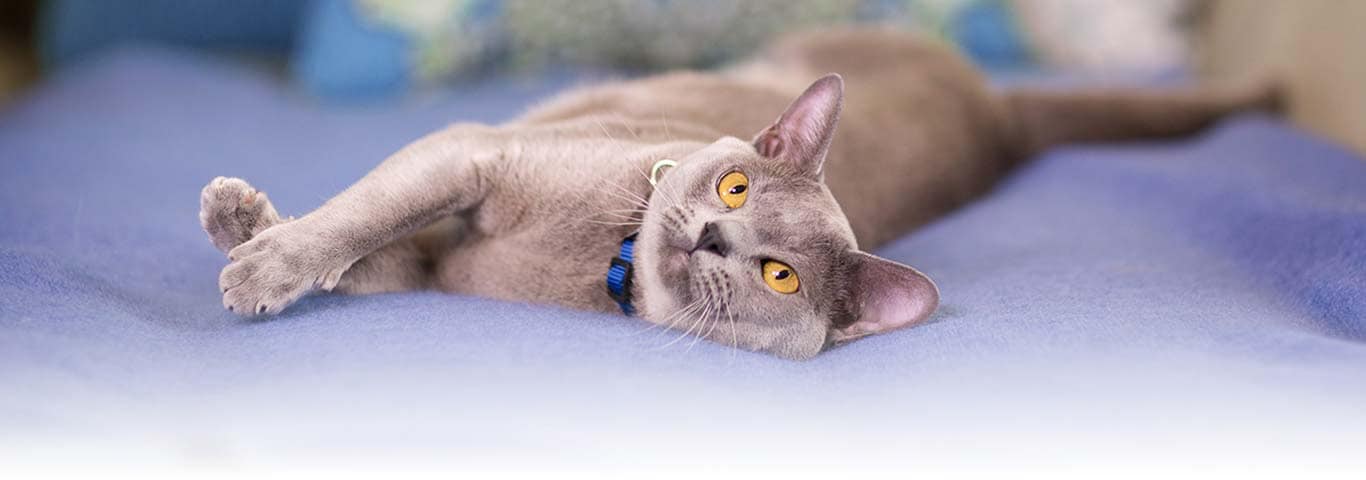Cat Digestive System Explained: Understanding Your Feline’s Digestion
Cats are fascinating creatures that make for great pets. As a cat owner, it is essential to understand your feline’s digestive system. In this article, we will explain the cat digestive system and what you need to know to keep your cat healthy and happy.
Table of Contents
- Introduction
- The Anatomy of a Cat’s Digestive System
- The Digestion Process in Cats
- Common Digestive Problems in Cats
- Signs of Digestive Problems in Cats
- Treatment and Prevention of Digestive Problems in Cats
- Feeding Your Cat for Optimal Digestive Health
- Common Questions About Cat Digestive Systems
The Anatomy of a Cat’s Digestive System
Cats have a unique digestive system that allows them to break down and absorb nutrients from their food efficiently. The digestive system of a cat consists of the following parts:
Mouth
The mouth of a cat contains sharp teeth that are designed to tear and chew food. They also have a rough tongue that is used to scrape meat from bones.
Esophagus
The esophagus is a muscular tube that connects the mouth to the stomach. It uses muscular contractions to move food down to the stomach.
Stomach
The stomach of a cat is a muscular sac that breaks down food using acid and enzymes. It is also responsible for regulating the rate at which food moves into the small intestine.
Small Intestine
The small intestine is where most of the digestion and absorption of nutrients take place. It is a long tube that is lined with villi and microvilli that increase the surface area available for absorption.
Large Intestine
The large intestine is responsible for absorbing water and electrolytes from the remaining indigestible material. The leftover waste then moves to the rectum and is eliminated through the anus.

The Digestion Process in Cats
The digestion process in cats begins in the mouth, where they use their teeth to tear and chew food. The saliva in the mouth contains enzymes that help to break down starches.
After the food is chewed and mixed with saliva, it is swallowed and moves down the esophagus to the stomach. The stomach then breaks down the food using acid and enzymes.
The partially digested food then moves to the small intestine, where most of the digestion and absorption of nutrients take place. The nutrients are absorbed through the villi and microvilli in the lining of the small intestine.
The remaining indigestible material then moves to the large intestine, where water and electrolytes are absorbed. The leftover waste is then eliminated through the rectum and anus.

Common Digestive Problems in Cats
Digestive problems are common in cats and can be caused by a variety of factors. Some of the most common digestive problems in cats include:
Vomiting
Vomiting is a common digestive problem in cats and can be caused by a variety of factors, including hairballs, foreign objects, and gastrointestinal diseases.
Diarrhea
Diarrhea is another common digestive problem in cats and can be caused by dietary changes, infections, and gastrointestinal diseases.
Constipation
Constipation is a condition where a cat has difficulty passing stool. It can be caused by a variety of factors, including dehydration, lack of fiber in the diet, and gastrointestinal diseases.
Signs of Digestive Problems in Cats
There are several signs of digestive problems in cats that you should be aware of. Some of the most common signs include:
- Vomiting
- Diarrhea
- Constipation
- Loss of appetite
- Weight loss
- Lethargy
- Dehydration
Treatment and Prevention of Digestive Problems in Cats
The treatment and prevention of digestive problems in cats depend on the specific condition. For vomiting and diarrhea, you can try withholding food for 12-24 hours to allow the stomach and intestines to rest. Afterward, you can reintroduce a bland diet such as boiled chicken and rice in small amounts.
For constipation, you can try adding fiber to your cat’s diet, such as canned pumpkin or psyllium husk powder. If the constipation persists, you should seek veterinary care.
To prevent digestive problems, make sure your cat has access to fresh, clean water and a high-quality diet that meets their nutritional needs. You should also avoid sudden changes in your cat’s diet and provide them with plenty of opportunities to exercise.
Feeding Your Cat for Optimal Digestive Health
Feeding your cat a high-quality diet is essential for maintaining optimal digestive health. Cats are obligate carnivores, which means they require a diet that is high in protein and low in carbohydrates.
You should also make sure your cat has access to fresh, clean water at all times. It is also a good idea to feed your cat small, frequent meals throughout the day, rather than one or two large meals.
Common Questions About Cat Digestive Systems
- What should I feed my cat for optimal digestive health?
- How can I prevent hairballs in my cat?
- What are the signs of digestive problems in cats?
- How can I tell if my cat is constipated?
- Can I give my cat human food?
Conclusion
In conclusion, understanding your cat’s digestive system is essential for maintaining their overall health and wellbeing. By providing them with a high-quality diet, access to clean water, and opportunities for exercise, you can help prevent digestive problems and ensure they live a happy, healthy life.
FAQs
- What should I do if my cat has chronic digestive problems? If your cat has chronic digestive problems, you should seek veterinary care to determine the underlying cause and develop an appropriate treatment plan.
- Can stress affect my cat’s digestive system? Yes, stress can have a significant impact on your cat’s digestive system and can cause vomiting, diarrhea, and other digestive problems.
- Can I give my cat probiotics? Yes, probiotics can be beneficial for your cat’s digestive health. However, you should always consult with your veterinarian before giving your cat any new supplements.
- Can I give my cat milk? No, most cats are lactose intolerant and can’t digest milk properly. Giving your cat milk can cause digestive problems, such as vomiting and diarrhea.
- How often should I clean my cat’s litter box? You should clean your cat’s litter box at least once a day to ensure it is clean and sanitary.




